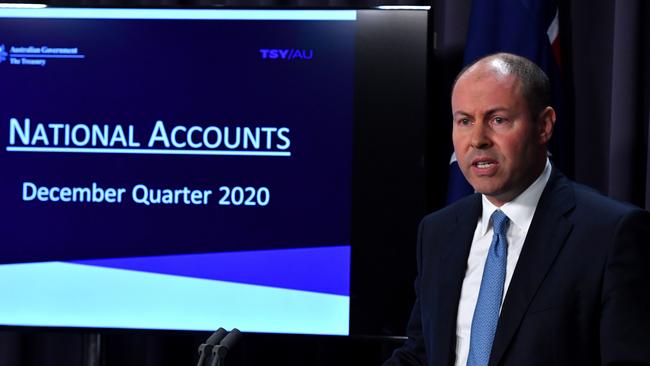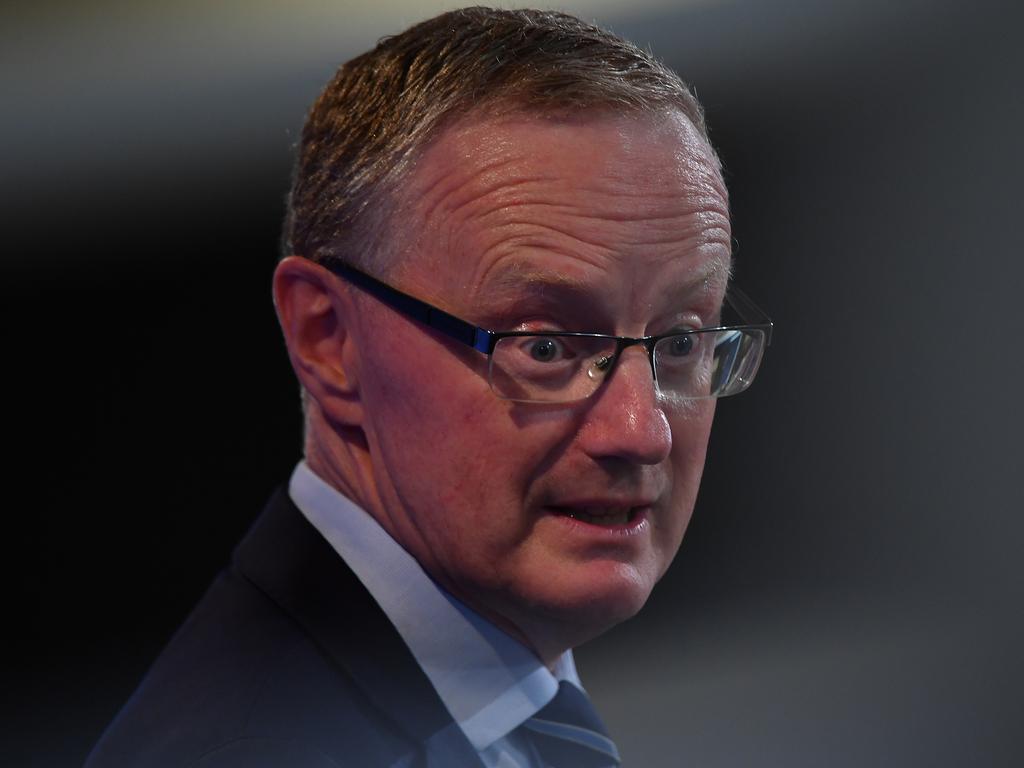
The economy surged 3.1 per cent between the third and fourth quarters of last year, far more than analysts had expected.
The final quarter was just 1.1 per cent smaller than at the end of 2019, despite the fact Victoria shut for a full month, South Australia and Sydney’s northern beaches for a few days, and domestic travel was almost at a standstill.
In other words, without the restrictions in place the economy would have almost certainly been a good deal larger than it was in 2019, and the first quarter of 2021 is bound to see similar growth.
It’s easy to be a genius in hindsight, but it’s looking increasingly clear the government and the Reserve Bank did too much to actively stimulate the economy rather than try to tide over households and businesses specifically affected by pandemic restrictions.
A tidal wave of borrowing and building is crashing over the housing market, with $29bn of loans issued in January in a single month, the highest ever. The jobless rate is rapidly falling back to pre-pandemic levels, unlike in the last recession in the early 1990s when it took seven years. These are signs of a boom, not of an economy slowly emerging from a recession.
The RBA, potentially setting itself up to be embarrassed, has promised, in effect, zero interest rates until 2024. And governments have borrowed hundreds of billions of dollars, some losing their credit ratings in the process.
This raises a question: should the remedies used to ameliorate an ordinary recession, such as lower interest rates and increasing government debt, have been applied so vigorously to this artificial recession, one largely created by fiat? At the time, the remedies seemed costless, almost “free” in some quarters, given extraordinarily low levels of interest rates.
That assumption is already being tested as bond yields around the world surge amid fears of inflation. Moreover, the UK government, whose total debts have increased by less (as a share of GDP) than state and federal governments here, is rumoured to be mulling over increases in income and company tax when it brings down its annual budget on Wednesday. Further increases in the cost of borrowing will see tax increases back on the table here.
When it comes to the economy, resilient has long been the Treasurer’s favourite word.
In 2006, Steven Kennedy, the current Treasury secretary, modelled the impact of a pandemic that killed 40,000 people — across all age groups — in three months in Australia. GDP would shrink by 5 per cent over the year.
A decline of 1.1 per cent for around 900 deaths, largely in nursing homes, on that measure might even suggest fragility.








Tipping unprecedented fiscal and monetary stimulus into an economy that has been artificially restrained was always going to be a little risky, a bit like driving a car — and accelerating — with the handbrake on. We’re now seeing the results of this strategy, once the economic handbrakes eased.